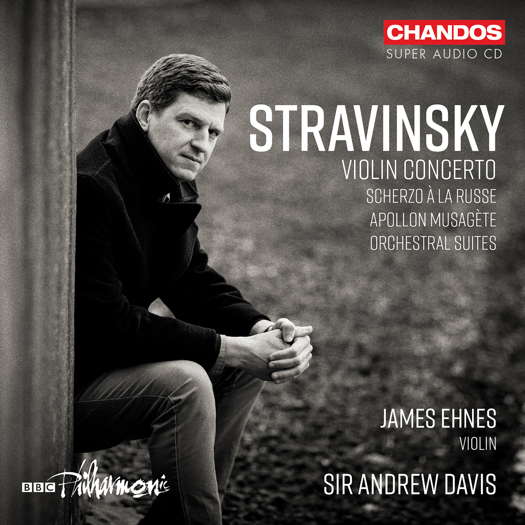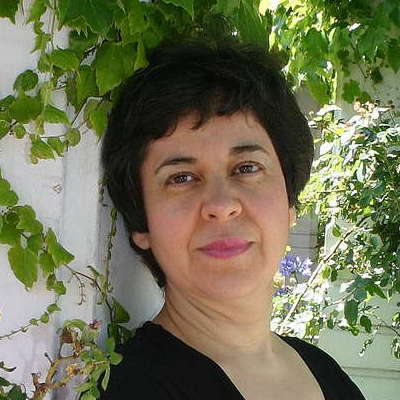 UPDATES: There's a new feature every day at Classical Music Daily. Read about the various ways we can keep in touch with you about what's happening here.
UPDATES: There's a new feature every day at Classical Music Daily. Read about the various ways we can keep in touch with you about what's happening here.

Superb Playing
GERALD FENECH listens to orchestral music by Stravinsky
'... consistently transparent and intensely alive.'
Igor Stravinsky (1882-1971) is undoubtedly Russia's greatest twentieth century composer and conductor with French citizenship (from 1934) and American citizenship (from 1945). Stravinsky's father was a bass opera singer, and the boy grew up taking piano and music theory lessons. While studying law at the University of Saint-Petersburg he met Rimsky-Korsakov, and studied under him until Rimsky's death in 1908.
Soon after, the budding composer met the impresario Sergei Diaghilev who commissioned Stravinsky to write three ballets: The Firebird (1910), Petrushka (1911) and The Rite of Spring (1913), the last of which brought him international fame after a near-riot at the premiere, and changed the way composers understood rhythmic structure.
Stravinsky's compositional career is divided into three periods: his Russian period (1913-1920), his neo-classical period (1920-1951) and his serial period (1954-1968). The first was characterized by Russian styles and folklore. The second exhibited themes and techniques from the classical period. In his serial period, Stravinsky turned towards compositional techniques from the Second Viennese School, particularly Schoenberg's twelve-tone technique. While some composers and academics disliked the avant-garde nature of Stravinsky's music, later writers recognized his importance to the development of modernist music. In 1998, Time Magazine named Stravinsky one of the hundred most influential people of the twentieth century.
Written for the Polish virtuoso Samuel Dushkin, the Violin Concerto is a four-movement work that takes the music of Bach as its inspiration, and is built around a chord of the notes D, E and A, which Stravinsky described as his 'passport to the concerto' and with which the solo violin part opens each movement.
Listen — Stravinsky: Toccata (Violin Concerto)
(CHSA 5340 track 1, 0:02-0:56) ℗ 2024 Chandos Records Ltd :
Dushkin himself premiered the concerto in Berlin in 1932 with the composer conducting, but despite the performance being favourably received, this concerto has still not established itself in the mainstream repertoire of the instrument. Hopefully, this dazzling rendition by the brilliant James Ehnes will give the piece the boost it really needs to climb up the ladder of popularity.
Listen — Stravinsky: Capriccio (Violin Concerto)
(CHSA 5340 track 4, 0:02-0:56) ℗ 2024 Chandos Records Ltd :
Apollon Musagète, a ballet in two parts for string orchestra, was written in 1927-28, and demonstrates the composer's complete rejection of the Russian folk music and idioms that had been so instrumental in his early ballets. They are replaced by a concentration on 'pure form' which became known as his neo-classical style.
Listen — Stravinsky: Prologue (Apollon Musagète)
(CHSA 5340 track 14, 0:01-0:56) ℗ 2024 Chandos Records Ltd :
The album is completed by his two orchestral suites – light-hearted music arranged from piano duets he had written in the 1910s.
Listen — Stravinsky: Galop (Orchestral Suite No 2)
(CHSA 5340 track 13, 0:00-0:39) ℗ 2024 Chandos Records Ltd :
The Scherzo à la russe is a whippy showpiece composed in the early 1940s for the Paul Whiteman band when newly arrived in California.
Listen — Stravinsky: Scherzo à la russe
(CHSA 5340 track 5, 3:16-3:58) ℗ 2024 Chandos Records Ltd :
Sir Andrew Davis's sensitive and expressive conducting draws some superb playing from the BBC Philharmonic, and performances are consistently transparent and intensely alive. A most welcome addition to the Stravinsky discography in excellent sound and annotations.
Copyright © 6 January 2024
Gerald Fenech,
Gzira, Malta




